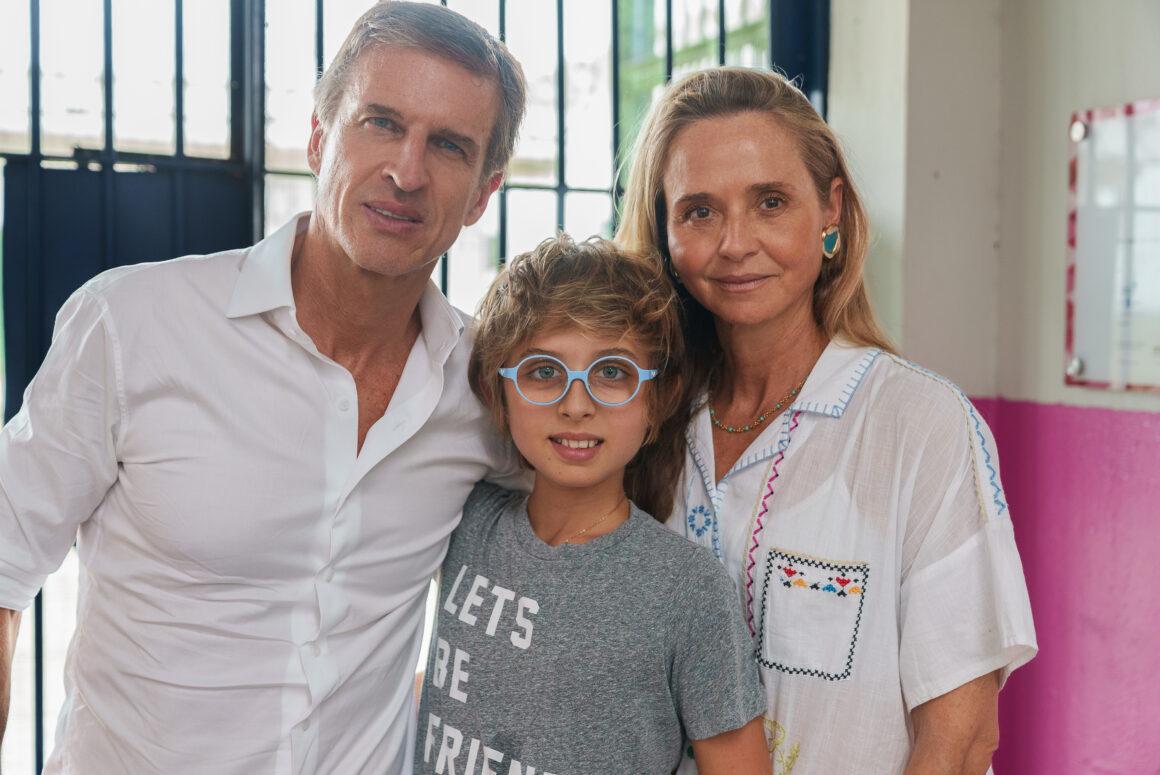Creation of the PDR Philanthropic Fund, maintainer of H360, is featured in Exame magazine
The following article, written by Natalia Viri, was originally published in Portuguese in Exame magazine in January 2024.
A member of one of the wealthiest families in Brazil, Patrícia Villela did not shy away from urgent – and thorny – causes. On the contrary, she embraced them. Married to Ricardo Villela Marino, whose family is one of the three stakeholding families of Itaú Unibanco and founded by his great-grandfather, the lawyer is one of the most vocal defenders of women rights, especially those who are in the prison system and formerly detained and more recently, of the medical use of cannabis in the country.
With a long history of activism carried out mainly through the Humanitas360 Institute, with advocacy to influence public policies for what they call “non-viable populations”, the family is now bringing together its philanthropic activities and impact investments under an endowment fund of $72 million Brazilian Reais.
It is a vehicle along the lines of American endowments: the money is invested and donations are supported by interest. The main thing remains untouched.
“It’s a way to make a generational commitment and ensure that this activity is sustainable in the long term”, says Villela.
Named PDR, the fund is the acronym for “Purpose Driven Resources” and also bears the initials of Patrícia, Ricardo and their son Daniel, aged 11 – who has accompanied his mother on visits to women’s penitentiaries since he was five. “It was always very important for us that he created this empathy with the human rights issue.”
In addition to the capital contributed, the fund also acquired the CIVI-CO building, a coworking space in the Pinheiros neighborhood in São Paulo, that houses several NGOs and startups with an impact thesis. Rents will also be used to support non-profit institutions.
In addition to Humanitas360, the fund will also support Articuladora e Negócios de Impacto da Periferia, which created a credit rights investment fund (FDIC) focused on impact businesses in Brazil’s peripheries and will finance the Institute of Social and Economic Research of Cannabis – the topic that has occupied Patrícia’s agenda the most in recent years.
The lawyer is on the Council of the Republic’s Presidency, where she has been seeking to raise awareness in Planalto, in addition to working in forums at the federal and state legislative level, proposing public policy designs to liberalize the medicinal use of cannabis and the industrial use of hemp.
“Access to medicinal cannabis is very expensive. We are talking about the right to live for the poorest patients, we have no reason to delay investing in this”, she points out, adding the potential of using hemp for various industrial applications.
“Hemp is decarbonizing and we are missing an opportunity to enter a new economy due to the punitive and moralistic bias of our public policies.”
More than ensuring the sustainability of donations, the PDR fund has governance aimed at giving more power to the family’s donations and impact investments.
By law, income from endowments can only be used for non-profit activities. But the fund’s structure will also be used to supervise the family’s investments in impact startups – even though the resources for this purpose will come from a separate pocket.
“It’s a way of giving more cohesion to our structure for civic-social activism,” says Villela.
Among the startups in the portfolio is Green Hub, an innovation platform that serves as a kind of accelerator for other cannabis startups in Brazil, of which Patrícia and Ricardo are the largest investors.
There is also Scirama Psychedelic Science, a biotechnology-based startup for research, development and innovation with psychotherapy compounds and protocols assisted with psychedelic substances. “We support causes that traditional donors reject or ignore,” says the lawyer.
The portfolio also includes CIVI-CO itself and Tereza, a social business that hires social cooperatives of imprisoned women, those released from the prison system and victims of domestic violence to produce handicrafts and textile items – which already exports to Europe and Japan.
The highest body of the PDR is its board of directors, formed by Ricardo, Patrícia and the master in international relations and consultant Piero Bonadeo.
The investment committee, which deliberates on the financial applications of resources, is made up of Ricardo Villela Marino, engineer Ricardo Amorim and business administrator and data science specialist Saulo Mendes de Almeida. Resource management is the responsibility of Itaú.
An instrument widely used outside the country to finance cultural, social and educational projects – including large universities such as Harvard and Yale – endowments have been growing in the country following the approval of law No. 13,800 in 2019, which regulates endowments.
“The instrument was already used in Brazil, but it gained more legal security”, says lawyer Priscila Pasqualin, PLKC Advogados, one of the biggest experts on the subject in Brazil and who worked on structuring the Villela Marino family fund.
According to her, one of the obstacles to the advancement of the instrument is that there is no exemption for financial investments made through these funds, as is the case in other countries.
“My advice and my message to donors is: to those who can, structure your actions in a long-lasting way”, says Villela. “You don’t need a lot of money to be a philanthropist, but to cause systemic change, you need resources and structure.”

